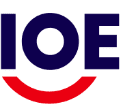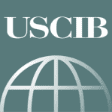2013 Engaging Business Forum Conference
2013 ENGAGING BUSINESS: IMPLEMENTING RESPECT FOR HUMAN RIGHTSAddressing the Hard Issues: Myanmar, Human Trafficking, Conflict Minerals, Supply Chain, Guiding Principles Best Practice
Sponsored by the U.S. Council for International Business, the U.S. Chamber of Commerce, and the International Organization of Employers
Hosted by The Coca-Cola Company
One Coca-Cola Plaza
Atlanta, Georgia
May 9, 2013
Overview
This human rights conference took place 23 months after the United Nations Human Rights Council unanimously adopted the Guiding Principles on Business and Human Rights on June 16, 2011. The Guiding Principles address the intersection of the State Duty to Protect and the Corporate Responsibility to Respect human rights. Under the Guiding Principles, to demonstrate its responsibility to respect human rights, a business should have in place (1) a policy commitment to respect human rights; (2) a human rights due diligence process to identify, prevent, mitigate and account for how it addresses its human rights impacts; and (3) processes to enable the remediation of any adverse human rights impacts it causes or which it may contribute. This is easier said than done in some instances.
Previous Atlanta human rights conferences have addressed in general terms how a business can implement respect for human rights. This conference focused on current best practice and tools across a company’s value chain, and addresses several of the difficult implementation issues that have emerged. These included human trafficking in a company’s business and supply chain, human rights due diligence and transparency in business investment in Myanmar, addressing human rights issues in the conflict minerals supply chain, and the challenges of traceability and mapping of supply chains.
In a collaborative environment with leaders in the field and companies from a range of sectors, the meeting offered a unique opportunity to better understand emerging best practice and to gain a perspective on resolving the tough respect for human rights issues. Participants came away from the conference with a better understanding of how to help their company implement the UN Guiding Principles on Business and Human Rights and mitigate potential and actual human rights impacts.
9th May
Time
Agenda
8:00 - 8:30 AM
1
Continental Breakfast
8:30 - 8:45 AM
2
Welcome and Opening Comments from The Coca-Cola Company&Meeting Overview and Objectives
Welcome and Opening Comments from the Coca-Cola Company
- Ed Potter, Director, Global Workplace Rights
Meeting Overview and Objectives
- Brent Wilton, Deputy Secretary General, International Organization of Employers (IOE)
8:45 - 10:00 AM
3
Panel Discussion — Business and Human Rights Guiding Principles Best Practice
Moderator
- Clifford Henry, Associate Director, Global Sustainability, Proctor & Gamble
IPIECA Business and Human Rights Task Force
- Bert Fokkema, Sustainable Development manager–Human Rights, Shell
Implementing the Guiding Principles – The Experience to Date
- Caroline Rees, President, Shift
- Arvind Ganesan, Business and Human Rights Director, Human Rights Watch
- David Schilling, Senior Program Director, Human Rights and Resources, ICCR
10:00 - 10:15 AM
4
Panel Discussion — The Business Role in Eliminating Forced Labor and Human Trafficking
Moderator
- Brent Wilton, Secretary-General, International Organization of Employers
The Dimensions of the Problem
- Beate Andres, head of Forced Labor Branch, International Labor Organization
A Business Community Roadmap
- Frances House, Director of Programs, Institute for Human Rights and Business
The Global Business Coalition Against Trafficking (gBCAT)
- David Arkless, Founder and Chairman, ArkLight Consulting (TBC)
Trafficking Case Study–Labor Broker Agencies
- Dan Viederman, Executive Director, Verite
10:15 - 11:30 AM
5
Panel Discussion — The Business Role in Eliminating Forced Labor and Human Trafficking
Moderator
- Brent Wilton, Secretary-General, International Organization of Employers
The Dimensions of the Problem
- Beate Andres, head of Forced Labor Branch, International Labor Organization
A Business Community Roadmap
- Frances House, Director of Programs, Institute for Human Rights and Business
The Global Business Coalition Against Trafficking (gBCAT)
- David Arkless, Founder and Chairman, ArkLight Consulting (TBC)
Trafficking Case Study–Labor Broker Agencies
- Dan Viederman, Executive Director, Verite
11:30 AM - 12:00 PM
6
The UN Working Group View of Implementing the Business and Human Rights Guiding Principles
Moderator
- James Plunkett, Senior Manager, Labor Law Policy, U.S. Chamber of Commerce
Speaker
- Margaret Jungk, Member of UN Working Group on Human Rights and Business
12:00 - 12:40 PM
7
LUNCH
12:40 - 1:00 PM
8
Luncheon Speaker: The View from Myanmar
Moderator
- Brent Wilton, ILO
Speaker
- Steve Marshall, International Labor Organization Liaison Officer, Myanmar
1:00 - 2:15 PM
9
Panel Discussion — Business Investment in Myanmar: How Much Due Diligence is Enough?
Moderator
- Steve Marshall, ILO, (TBC)
Speaker
- Salil Tripathi, Director of Policy, Institute for Human Rights and Business
- Kathy Mulvey, Director, Conflict Risk Network
- Mark Nordstrom, Senior Corporate Counsel, Labor and Employment Law, General Electric
- Melike Yetkin, Bureau of Democracy, Human Rights and Labor, U.S. Department of State
2:15 - 2:30 PM
10
BREAK
2:30 - 3:45 PM
11
Addressing the Hard Supply Chain Issues
Moderator
- Adam Greene, Labor Affairs & Corporate Responsibility, U.S. Council for International Business
Conflict Minerals
- Zoe McMahon, Director, Social & Environmental Sustainability and Compliance, Hewlett-Packard
Traceability
- Anna Walker, Director, Public Policy and Stakeholder Engagement, Levi Strauss & Co.
Human Rights and Purchasing
- Marcela Manubens, Global Vice President for Social Impact, Unilever
Human Rights and Mapping the Supply Chain
- Stuart Kyle, Director, Workplace Accountability, The Coca-Cola Company
3:45 - 5:00 PM
12
Panel Discussion — Supply Chain Human Right Due Diligence Tools and Best Practice
Moderator
- Ronnie Goldberg, Senior Counsel, U.S. Council for International Business
Supply Chain Tools
- Conan Shearer, e-Business Manager, ExxonMobil
Supply Chain Tools
- Jorge Perez-Lopez, Executive Director, Fair Labor Association
- Chris Jochnick, Director of the Private Sector Department, Oxfam
- Bennett Freeman, Senior vice President, Sustainability Research and Policy, Calvert Investments
5:00-5:30 PM
13
Next Steps and Closing Comments
Speakers
- Brent Wilton, IOE
- Ronnie Goldberg, USCIB
- James Plunkett, U.S. Chamber
- Ed Potter, TCCC



